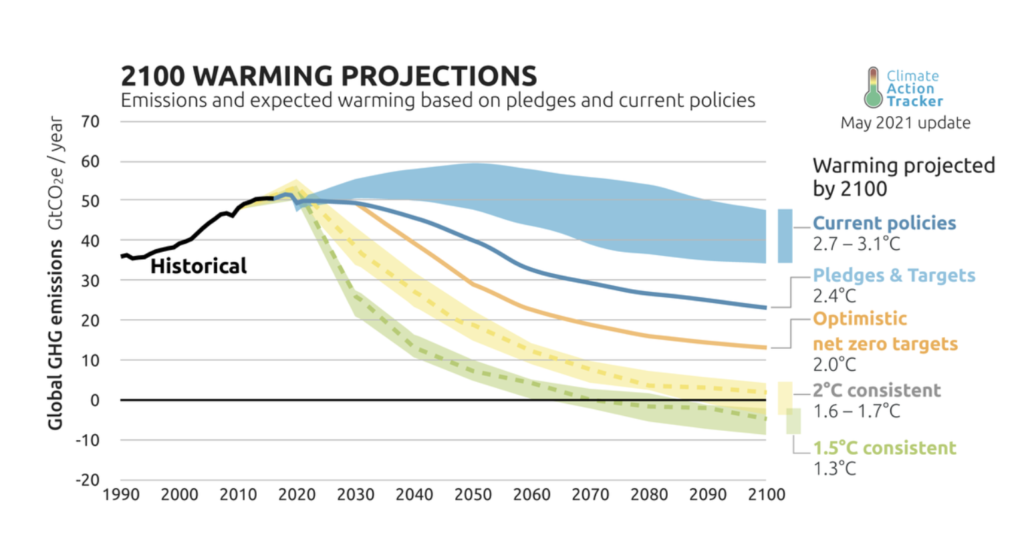You’ve probably heard that the IPCC released their 6th assessment report this week which explained how the climate crisis is already impacting every region worldwide, and is intensifying as global carbon emissions increase. If you haven’t had a chance to look at the report, don’t worry! You can read our key takeaways from below.
Just a quick note that climate anxiety is real, and this IPCC report may be extremely alarming to some people. If you are feeling overwhelmed or hopeless, counseling is available to OSU students through CAPS. Engaging in collective action is also a good way to feel more hopeful.
Key takeaways from the report:
- This level of climate changes is unprecedented. Current CO2 levels are the highest they have been in at least 2 million years, and are rising faster than they have in the past 56 million years.
- High greenhouse gas levels have led to:
- The hottest decade on record
- Rapid sea level rise
- Major changes in ecosystems
- The IPCC has given firm scientific consensus that the climate crisis is caused by humans. 70% of climate change is caused by the burning of fossil fuels, and the rest from land use changes such as agriculture, deforestation, and urbanization.
- Avoiding the worst impacts of the climate crisis means keeping global average warming below 1.5ºC, which requires being much more ambitious than our current climate plans.

What else do we know?
- Responsibility for these emissions is not distributed evenly, as other studies show that more than a third of total cumulative emissions have been caused by only 20 corporations, including Exxon, Chevron, and BP.
- We also know that the impacts of the climate crisis have not been experienced evenly, with those in developing nations, particularly the most poor and vulnerable, experiencing the most frequent and devestating impacts. These environmental changes often lead to conflict, displacement, food and water insecurity, negative health impacts, and economic suffering.
The good news:
- Renewable energy and energy storage has never been cheaper! A rapid transition away from fossil fuels and towards a regenerative economy will create jobs, improve environmental quality and human health, and significantly reduce the climate crisis.
- We know that there are sustainable ways for humans to exist and have viable livelihoods. Indigenous communities have demonstrated for millennia that human-nature relationships can be mutually beneficial. It’s time to follow their lead.

Here’s the summary for policy makers (only 20 pages) if you want to take a look. Understanding the nuances of this report might take some background in climate science! For OSU Students, ATS 201 is the intro-level climate science course, and it is offered Fall, Winter, and Spring quarters of next year. This is a great course to take if you want to understand the complexities and trends of climate science.
You can also take a look at the IPCC’s new interactive atlas, which allows users to view visualizations of climate change, filtering for different datasets, regions, timescales, and emissions scenarios.

Oregon State University in Corvallis, Oregon, is located within the traditional homelands of the Mary’s River or Ampinefu Band of Kalapuya. Following the Willamette Valley Treaty of 1855, Kalapuya people were forcibly removed to reservations in Western Oregon. Today, living descendants of these people are a part of the Confederated Tribes of Grand Ronde Community of Oregon and the Confederated Tribes of the Siletz Indians.
Cover image credit: “Changing” by Alisa Singer, IPCC

CATEGORIES: Uncategorized